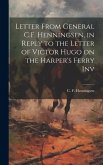In 1812, less than forty years after breaking from Britain, the United States found itself in another war with its former colonial master. Now, during the two hundredth anniversary of the War of 1812 comes Neither Victor nor Vanquished, William Weber’s reappraisal of this critical but frequently misunderstood conflict. In the first half of the book, Weber reexamines the war’s military aspects, highlighting the asymmetric nature of the conflict as the world’s foremost naval power with a credible professional army stood against an idealist republic with commercial and agricultural aspirations but without an adequate navy and army. Weber also attempts to recalibrate popular conceptions of the U.S. forces’ generally poor performance during “Mr. Madison’s War,” and frames the War of 1812 in the context of both the Jeffersonian Revolution that preceded the war and the accelerated territorial expansion and consolidation of the United States that eventually led to the American Civil War. The book’s thought-provoking second half presents alternative outcomes for the War of 1812, reminding us that history is made, not predetermined. Various scenarios arise from differences in two key factors—the quality of generalship in both armies and the direction of the Napoleonic Wars, which Britain was simultaneously fighting. Weber imagines a worst case scenario for the young republic, an ending worse than a simple military defeat. Indeed, history might have provided a different answer to Francis Scott Key’s central question, “O, say does that star-spangled banner yet wave / O’er the land of the free and the home of the brave?” A final what-if explores a nineteenth-century America that chooses to avoid the War of 1812 and, consequently, the rise of Andrew Jackson.
Hinweis: Dieser Artikel kann nur an eine deutsche Lieferadresse ausgeliefert werden.
Hinweis: Dieser Artikel kann nur an eine deutsche Lieferadresse ausgeliefert werden.








